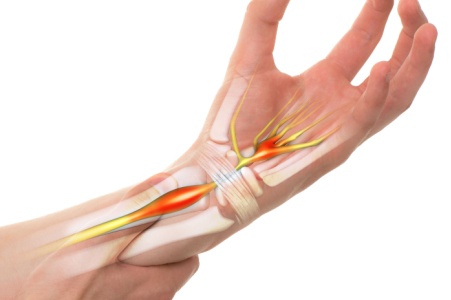Blog

A herniated disc is a spinal condition that occurs when the soft inner portion of a disc pushes through its outer layer and irritates nearby nerves. Common symptoms include back or neck pain, stiffness, numbness, tingling, and weakness that may travel into the arms or legs. Causes often include age-related wear, poor posture, repetitive strain, or sudden injury. Risk factors include physically demanding work, excess body weight, smoking, and prolonged sitting. A chiropractor can help by evaluating spinal alignment and using gentle adjustments to reduce pressure on the affected disc, improve mobility, and support natural healing. Chiropractic care may also include therapeutic exercises and posture guidance to prevent future flare ups. If you have persistent spine-related pain or nerve symptoms, it is suggested that you schedule a chiropractic evaluation today to take an active step toward relief and improved daily comfort.
Bulging and herniated discs are common spinal conditions that can lead to persistent pain, discomfort, and limited mobility. A disc bulge occurs when the outer layer of the spinal disc begins to protrude, while a herniated disc involves a rupture that allows the inner gel-like core to seep out. Both conditions often compress nearby nerves, resulting in pain, tingling, numbness, and muscle weakness that can affect the back, legs, and even arms.
From a chiropractic perspective, addressing disc bulges and herniations focuses on reducing pressure on the spinal nerves and restoring proper spinal alignment. Chiropractors employ gentle, targeted adjustments designed to alleviate nerve compression and improve spinal mechanics. By correcting misalignments, chiropractic care can help reduce inflammation, enhance blood flow, and promote natural healing processes. This holistic approach aims to relieve pain without invasive procedures or medication.
For many patients, complementary therapies like spinal decompression, therapeutic exercises, and lifestyle guidance support long-term relief and function. Chiropractic care offers a non-surgical, drug-free path to managing disc issues, focusing on enhancing overall spinal health and reducing the likelihood of recurring symptoms. Each treatment plan is tailored to the patient’s specific needs and goals, ensuring an effective, individualized approach.
1. Is chiropractic treatment safe for herniated discs?
Generally, chiropractic care is safe for herniated discs when performed by a licensed professional who assesses the condition carefully. Mild adjustments or specific techniques are often used to avoid further injury.
2. How long does it take to see improvement?
Improvement times vary, but many patients notice reduced pain and better mobility within a few weeks of consistent chiropractic care, depending on the disc’s severity and other factors.
If you have any questions please feel free to contact our office located in Hammonton, NJ .

Carpal tunnel syndrome is caused by compression of the median nerve as it passes through the wrist, leading to pain, numbness, tingling, and weakness in the hand and fingers. Risk factors include repetitive hand movements, prolonged computer work, assembly line operations, poor posture, and sustained gripping or typing that strains the wrist and forearm. Over time, these activities can increase pressure within the carpal tunnel and irritate surrounding tissues. A chiropractor can help by evaluating the alignment of the wrist, elbow, shoulder, and spine to reduce nerve stress and improve overall biomechanics. If hand or wrist symptoms are interfering with work or daily life, it is suggested that you consult a chiropractor who can provide natural relief and treatment solutions.
Carpal Tunnel Syndrome
Carpal tunnel syndrome, or CTS, is a condition caused by compression of the median nerve, which runs through the carpal tunnel in the wrist. This tunnel is a narrow passageway surrounded by bones and ligaments, and when it becomes compressed or inflamed, it can put pressure on the nerve. Symptoms of CTS include tingling, numbness, weakness, and pain in the hand and fingers, often making simple tasks difficult and uncomfortable.
Chiropractic care offers a non-invasive approach to managing CTS by addressing alignment and reducing nerve pressure. Chiropractors start by evaluating the wrist, elbow, and even the cervical spine or neck, as misalignments in these areas can contribute to nerve compression in the wrist. Through gentle adjustments, chiropractors can improve the alignment of the wrist and spine, helping to reduce the pressure on the median nerve.
In addition to adjustments, chiropractors may use soft tissue therapy, such as stretching and myofascial release, to reduce inflammation surrounding the wrist and enhance mobility.
Why Consider Chiropractic for CTS?
Chiropractic care can provide lasting relief by targeting the root causes of CTS, reducing pain, and promoting long-term hand and wrist health.
Can Chiropractic Care Address Repetitive Strain as a Cause of CTS?
Chiropractic care can help manage repetitive strain by improving joint alignment and recommending ergonomic adjustments.
If you have any questions, please feel free to contact our office located in Hammonton, NJ .

Middle right back pain is a common issue that can interrupt daily comfort and movement. It may develop from muscle sprains caused by overuse or sudden twisting, or from herniated disks that place pressure on surrounding nerves. Poor posture while sitting, standing, or working can strain the muscles along the spine and contribute to persistent discomfort. In some cases, the pain may come from kidney problems, which can create sharp or aching sensations in the middle right back area. A chiropractor can evaluate the source of your pain, improve spinal alignment, reduce muscle tension, and guide you with exercises that support healing and long term strength. If you have middle back pain, it is suggested that you consult a chiropractor who can offer effective and natural relief solutions.
Mid back pain, centered in the thoracic region, refers to discomfort or stiffness in the upper and middle back, which connects to the ribcage. This area is essential for stability and movement, but poor posture, repetitive strain, or injuries can cause irritation and tension. Pain may range from a dull ache to sharp, localized discomfort that worsens with certain movements or prolonged sitting.
Chiropractors take a thorough approach to managing mid back pain, identifying misalignments or tension in the thoracic spine that may contribute to discomfort. Spinal adjustments, tailored to improve alignment and relieve pressure, form the core of treatment. Supporting therapies like guided exercises, posture correction techniques, and ergonomic recommendations are also employed to enhance recovery and prevent future issues. Chiropractic care helps restore balance and function, allowing patients to move freely and live without pain.
1. Can carrying a heavy bag or backpack cause mid back pain?
Yes, uneven weight distribution from a heavy bag can strain the thoracic spine and surrounding muscles, leading to pain. Chiropractors can help correct alignment and recommend strategies to reduce strain.
2. How can chiropractic care help desk workers with mid back pain?
Chiropractors address postural imbalances and spinal restrictions caused by prolonged sitting, using adjustments and ergonomic advice to relieve pain and prevent recurrence.
For additional information, please contact our office located in Hammonton, NJ .

